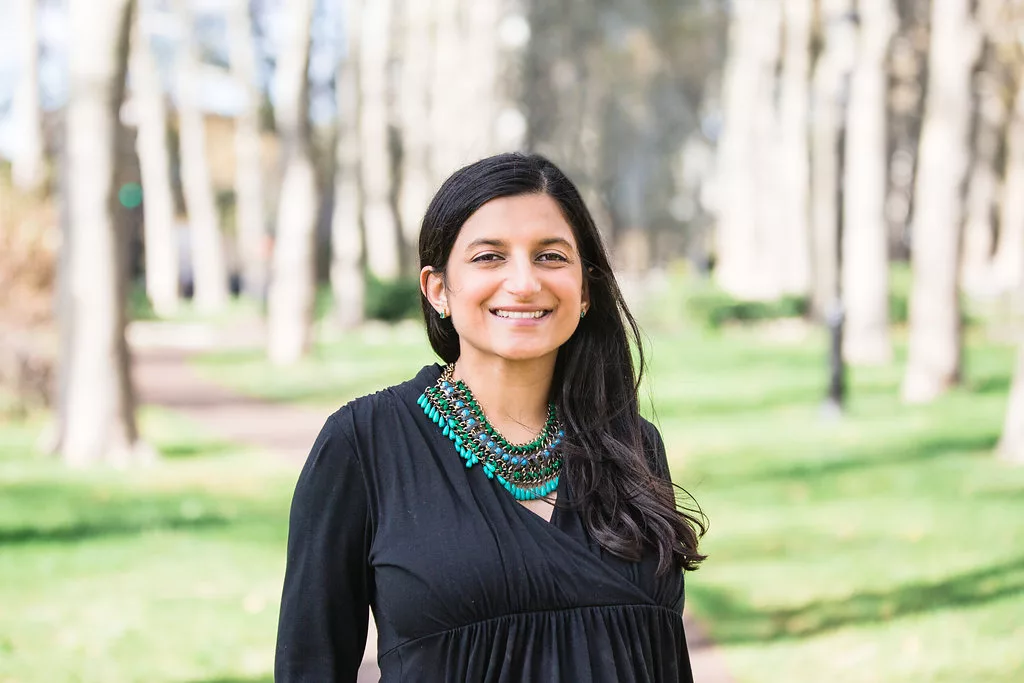A positive outlook according to our investor network
A SOCAP Guest Post by Wajiha Ahmed
Catalyst Fund and JPMorgan Chase & Co. are sponsoring the Inclusive Fintech Track at SOCAP17.
Global fintech is all the rage in advanced and emerging markets alike. VC funding to fintech companies reached a record US$13.6 billion in 2016, with 840 recorded deals, according to KPMG. And earlier this year, Accion and Quona Capital announced $141 million in commitments for the Accion Frontier Inclusion Fund, the world’s first global fintech fund for the underserved in emerging markets. Participating institutional investors included investment banks, foundations, and development finance institutions.
At Catalyst Fund, we support early-stage fintech startups by offering seed capital in the form of grants, tailored technical support and mentorship by investors such as Accion Venture Lab and Quona Capital. The objective is to make promising innovative startups more investment-ready for institutional investors by solving the early challenges of access to capital and knowledge to get traction. One of the programs we run at Catalyst Fund is the Circle of Investors, which connects our startups to a wider group of investors and also acts as a channel for sharing our insights. Our 24 members include mainstream and impact investors, as well as donor institutions, among them Blue Haven, Index Ventures, and the IFC. We surveyed the Circle this year and the results are a unique perspective on inclusive fintech investors and what they’re thinking.
Circle members are enthusiastic about the inclusive fintech investment environment
Heading into mid-2017, our Circle investors are optimistic about funding the inclusive fintech startup ecosystem and some are very aggressive about pursuing investment opportunities. Their positive outlook bodes well for fintech startups, and reflects global trends.
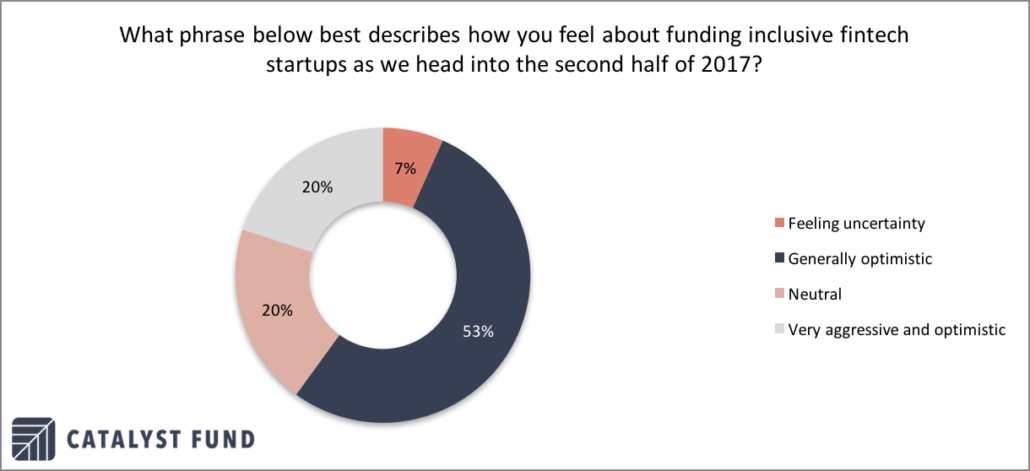 We also asked the funds to weigh in on startups based in emerging markets in particular. Surprisingly, most believe innovation in inclusive fintech in emerging markets is on par or ahead of that in developed markets! Only 30 percent said developing markets have catching up to do.
We also asked the funds to weigh in on startups based in emerging markets in particular. Surprisingly, most believe innovation in inclusive fintech in emerging markets is on par or ahead of that in developed markets! Only 30 percent said developing markets have catching up to do.
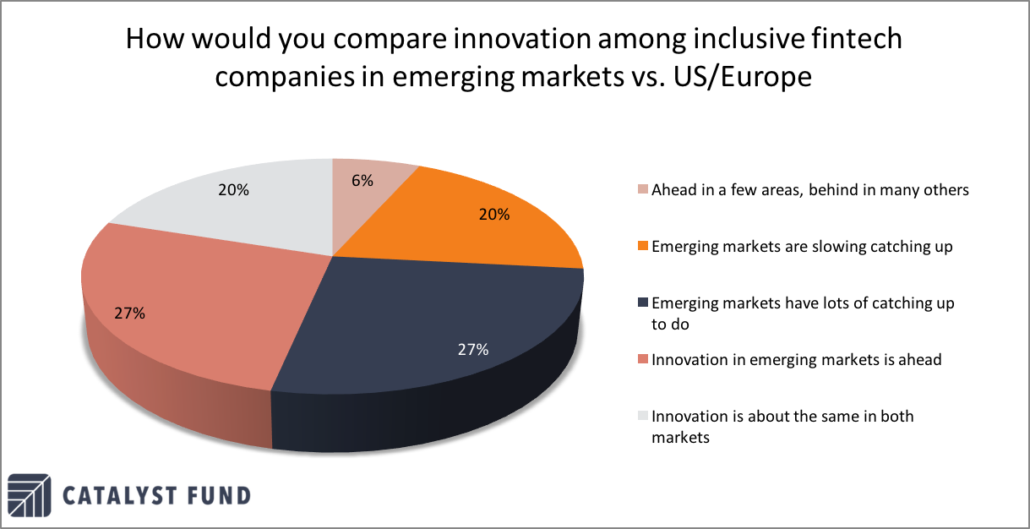 What areas of technology are Circle members most excited about in the coming five to ten years?
What areas of technology are Circle members most excited about in the coming five to ten years?
“Insurtech is predicted to continue the strong growth witnessed in 2016 as the insurance industry plays catch-up with the innovations seen in the banking industry” – KPMG
Investors believe the most important opportunities are in the insurance, supply chain, and PAYGo sectors (read our take on the inclusive fintech landscape). This isn’t surprising considering that global investments for insurtech in particular hit $1 billion. Not surprisingly, there is skepticism about the blockchain market. But more members than anticipated view machine learning (ML) and artificial intelligence (AI) as hypes and fads. This perception may reflect that companies should only prioritize pursuing AI when they are data-ready.
Philanthropic capital can fill the remaining gaps.
Our Circle members see great potential for the inclusive fintech market, but they do see important gaps. The biggest area of concerns for our VCs in the next five years are the inability of fintech startups targeting the bottom of the pyramid to form the right partnerships, deal with regulatory challenges and overcome weak value propositions.
“Wholesale finance for innovative lending is a major constraint; commercial banks etc too conservative to partner in many emerging markets.” – a donor
“In Africa, we see disparate regulations across jurisdictions as a big barrier to regional scale which is a critical factor in our investment process.” – mainstream VC
“Inclusive Fintechs’ B2B and B2C value props need to balance products that are tailored responsibly to vulnerable populations (reasonable interest, bundled financial literacy, expensive behavior change) with scalable economics.” – mainstream VC
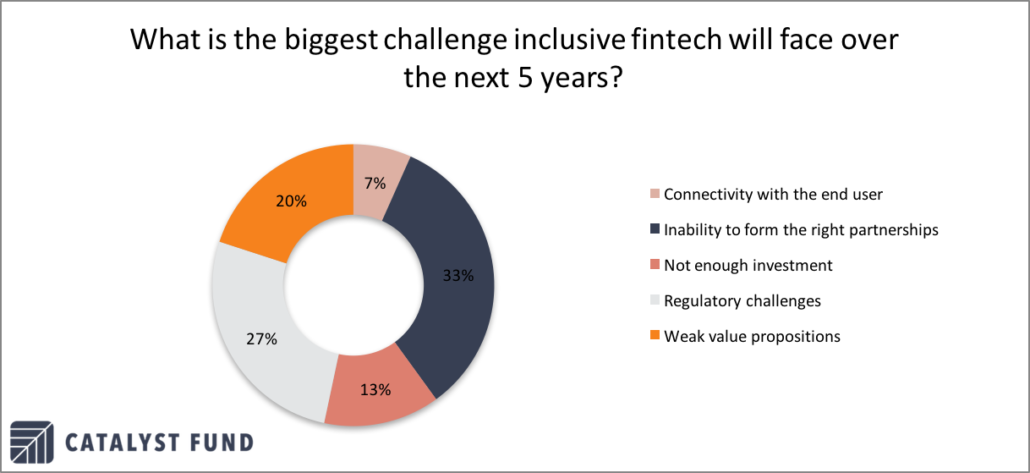 So how can emerging market fintechs get to the next level for financing and tackle these challenges? This is where the more patient philanthropic capital can come in. Circle investors think philanthropic capital can make the most difference by deploying technical assistance (TA), funding risky investments, and synthesizing sector-level learnings. The most needed areas for TA include data analytics, customer development, and tech strategy in particular.
So how can emerging market fintechs get to the next level for financing and tackle these challenges? This is where the more patient philanthropic capital can come in. Circle investors think philanthropic capital can make the most difference by deploying technical assistance (TA), funding risky investments, and synthesizing sector-level learnings. The most needed areas for TA include data analytics, customer development, and tech strategy in particular.
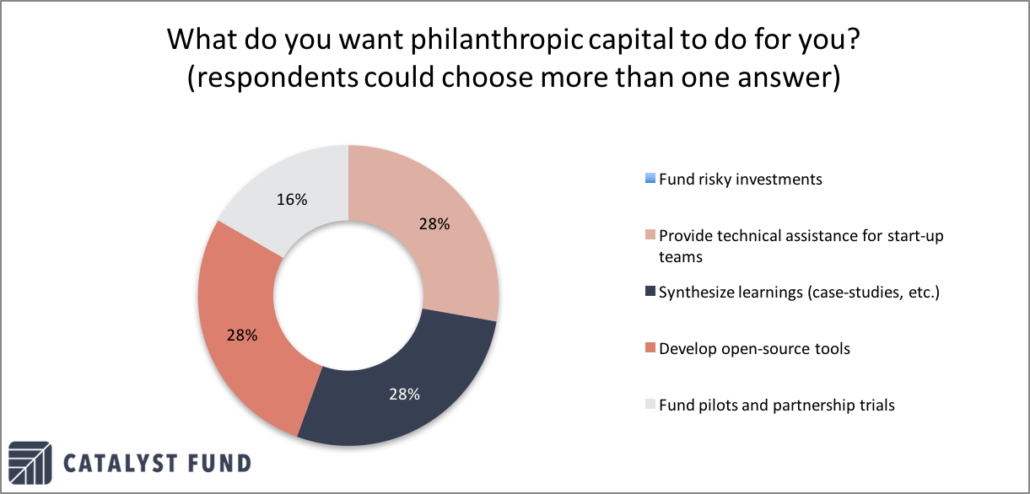
“Right now the best use is filling the seed funder gap which continues to be the biggest challenge in getting to a series A investment.”
Catalyst Fund helps fill this identified gap by providing $100,000 in grant funding to startups to help de-risk them, as well as tailored Technical Assistance to help these companies overcome barriers related to the customer journey, technology development roadmaps and partnerships development.
But there is still a large gap to fill. More investors who are able to come in at the earlier stages should explore this booming field in emerging markets. Similarly, many can still enter at the other hand, to ensure the startups can continue on their funding journeys and grow into successful businesses. With that, we invite for-profit investors in particular to deploy their capital in inclusive fintech. Interested investors – mainstream and impact alike – can reach out to Catalyst Fund to join our investors’ Circle and be part of the cutting edge of inclusive fintech.
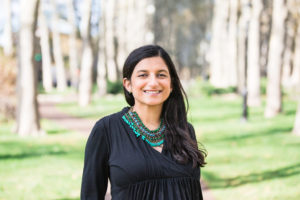 Wajiha Ahmed is Deputy Director, Customer Insights at BFA, where she leads consumer research projects to better understand the intersections of user experience and financial services in developing countries. Previously she worked at the World Bank, where she advised and worked with regional teams on bottom-of-the-pyramid energy access pilots in South Asia and Sub-Saharan Africa. Wajiha has also worked directly on microfinance projects with the Aga Khan Foundation and the Kashf Foundation (an MFI based in Pakistan).
Wajiha Ahmed is Deputy Director, Customer Insights at BFA, where she leads consumer research projects to better understand the intersections of user experience and financial services in developing countries. Previously she worked at the World Bank, where she advised and worked with regional teams on bottom-of-the-pyramid energy access pilots in South Asia and Sub-Saharan Africa. Wajiha has also worked directly on microfinance projects with the Aga Khan Foundation and the Kashf Foundation (an MFI based in Pakistan).
